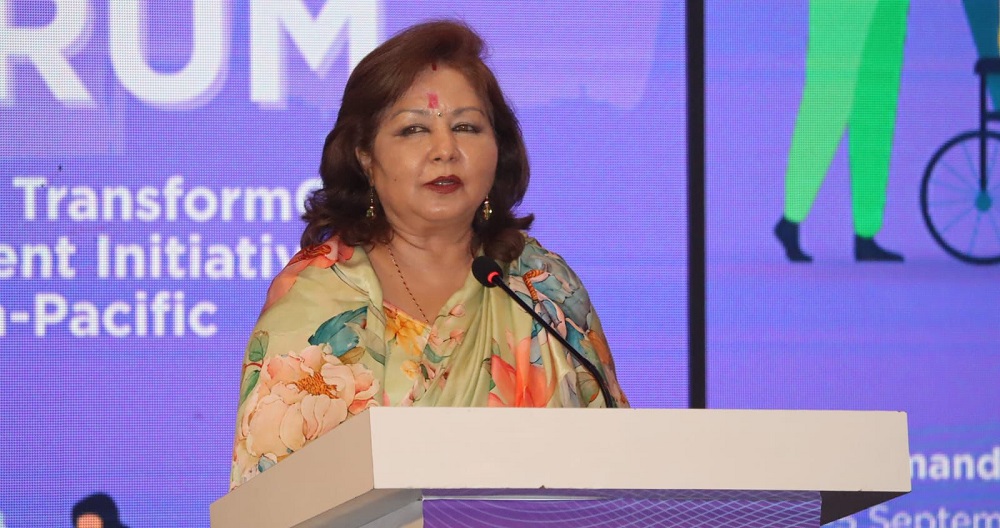

KATHMANDU: Minister for Foreign Affairs Dr Arzu Rana Deuba has said that care work is not only a profession for the home, community, and nation, but also a humanitarian service.
Addressing the International seminar related to the Asia Pacific Care Learning organized here today, Foreign Minister said, “The entire spectrum of caregiving tasks from childhood to old age should not be viewed simply as a profession or job, it is also a humanitarian service.”
She also stated that care work remains undervalued, underserved, and underfunded despite its critical role. “It is often overlooked in economic calculations. Most often, women are engaged in unpaid and domestic work.”
Saying that the contribution of this sector in Nepal is almost equal to that of agriculture and that women are mostly bearing its disproportionate burden, adding that this has hindered women’s participation in the economy, politics, and public life.
Minister Rana also shared that Nepal has long recognized the importance of care services and has taken progressive steps in addressing these issues. Through various government initiatives, care programmes have been implemented, including Early Childhood Education and Care (ECEC), Child Care Homes, Old Age Homes, Day Care Centers for the elderly, shelters for Persons with Disabilities, and Safe Houses for women and other vulnerable groups.
“Recognizing the critical role of care in advancing gender equality, Nepal has incorporated the concept of care into its 16th periodic national plan,” she stated.
However, she pointed out the challenges as a lack of comprehensive policies and public awareness, gender inequality, insufficient skill development for caregivers and limited investment in care infrastructure.
According to Minister Rana the care has multiplier effects in family, society and national economy and investing in the care economy is the pathway to economic growth and gender equality. “Investing in care should not be considered as a liability. It is an investment. We consider care as public goods.”
“Addressing these issues and investing in the care economy requires a multi-sectoral and whole-of-state approach involving increased investment, policy development, capacity building, training, and awareness campaigns,” she viewed.
Stating that Nepal was making efforts to improve the care economy, Minister Rana said the Nepal government was eager to learn from global best practices and collaborate with international partners in this regard.
Representatives from UN Women Regional Office for Asia and the Pacific; UNICEF Regional Office for East Asia and the Pacific; Hanaa Singer-Hamdy, the UN Resident Coordinator in Nepal and several other dignitaries were present at the event.